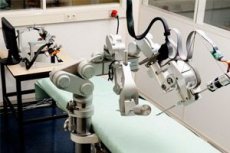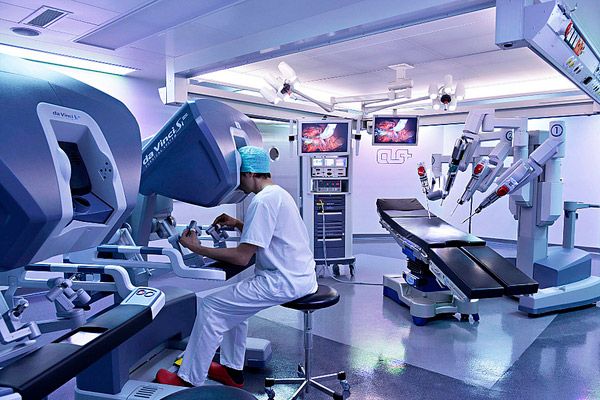New publications
In the future, they'll be doing surgeries remotely
Last reviewed: 02.07.2025

All iLive content is medically reviewed or fact checked to ensure as much factual accuracy as possible.
We have strict sourcing guidelines and only link to reputable media sites, academic research institutions and, whenever possible, medically peer reviewed studies. Note that the numbers in parentheses ([1], [2], etc.) are clickable links to these studies.
If you feel that any of our content is inaccurate, out-of-date, or otherwise questionable, please select it and press Ctrl + Enter.

Experts have stated that in the near future they will be able to develop equipment that will allow surgeons to perform remote operations while being at a great distance from the patient. This was reported by doctors from the Nicholson Center at the Florida Hospital, and the US government has already allocated them $5 million to conduct all the necessary experiments.
Incidentally, devices that allow surgeons to work at a distance from the patient have existed for quite some time, but researchers from Florida intend to improve existing technologies. Particular attention will be paid to the safety of surgical centers that will be responsible for remote operations.
It is worth noting that operations of this kind have been carried out before, but almost always the patient and the surgeon were practically next to each other, in addition, the equipment used for the operation and the remote control were connected by wires. Now the team of specialists from the Nicholson Center are trying to improve the devices in such a way as to simplify the work of surgeons as much as possible, as well as increase the possibilities for future operations.
The first operation in the world that took place without the presence of a surgeon in the operating room was carried out 10 years ago. At that time, the surgeon was 6 thousand kilometers away from the patient, in the USA, while the patient was in Italy. Such a unique operation became possible thanks to information and satellite technologies, as well as unique equipment.
The first operation in the world at such a distance was successful, and it was performed by Professor Carlo Pappone. The patient was a young man suffering from atrial fibrillation, during the operation a small probe was inserted into the patient's body through special catheters, which was controlled by radio frequency signals. In the patient's heart, the probe destroyed tiny pieces of tissue that interfered with the normal functioning of the heart. For safety, doctors from an Italian clinic were in the operating room with the patient, who could intervene in the operation at any time.

Now, most specialists are already working remotely - they successfully consult and prescribe treatment to their patients, many note that this approach has its advantages and gives positive results.
New opportunities in surgery will allow qualified doctors to provide assistance to a person located anywhere in the world. Now this seems fantastic, in addition, such technologies have certain risks, but specialists are working on it. It is planned to use the Internet for data transmission, but there is a problem with signal delay, which can significantly affect the course of the operation. Specialists noted that it will be possible to introduce the technology for widespread use after the maximum signal delay does not exceed 200 milliseconds, and this can be compared to an instant.
Remote surgery is most interesting for the military, since in hot spots, soldiers with serious injuries will have the opportunity to receive the necessary surgical care in a timely manner. Perhaps it was the difficulties of conducting operations in mobile hospitals that prompted scientists to think about remote surgery.
 [ 1 ]
[ 1 ]
